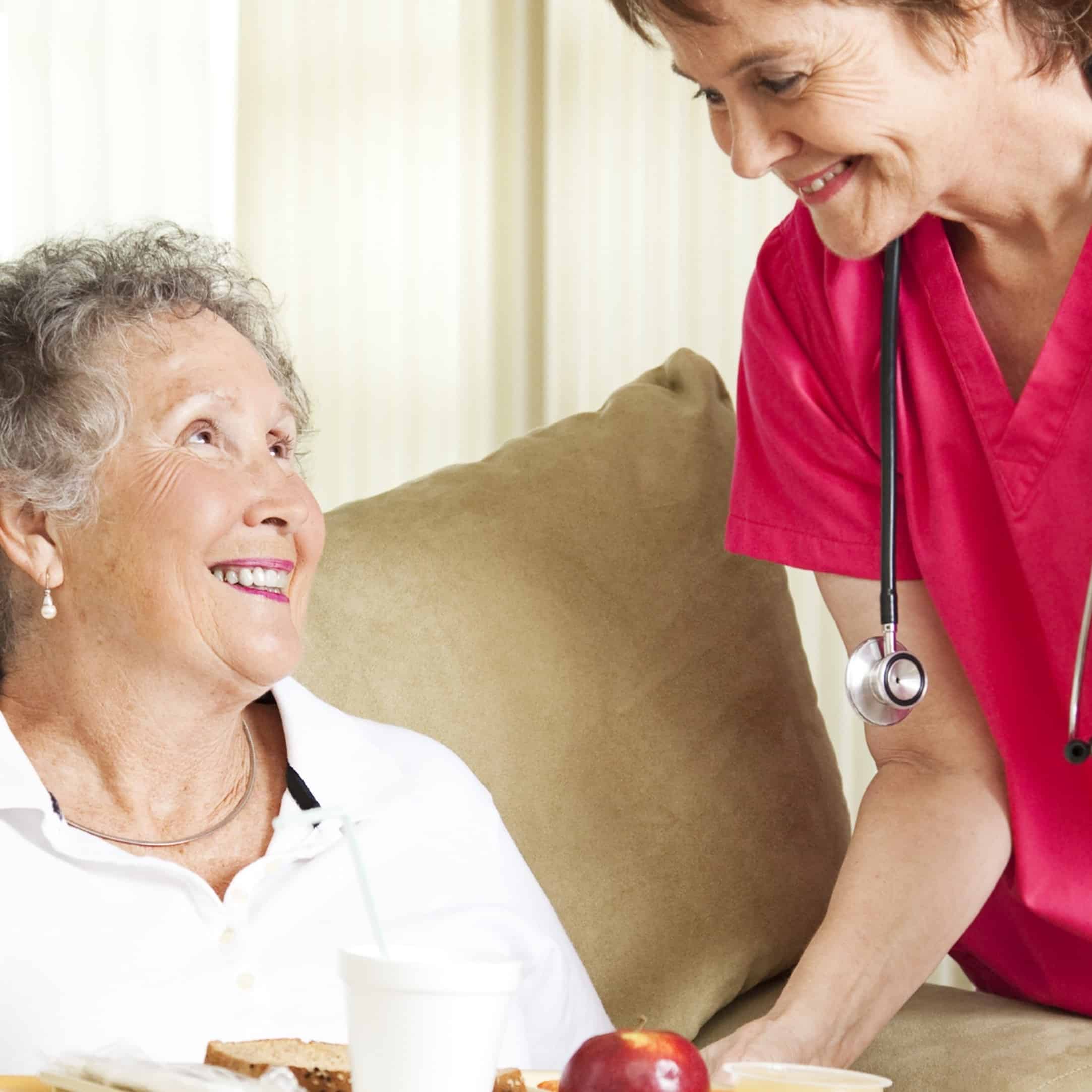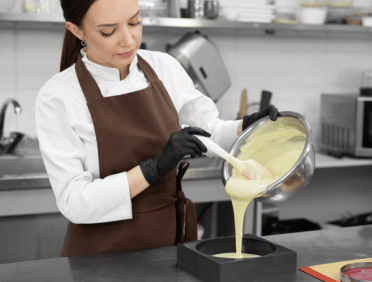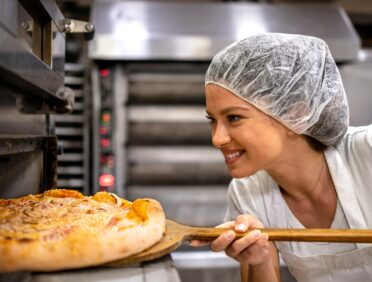Prioritising food hygiene and safety in care homes is more than just a legal necessity; it is also a critical component of providing quality care to residents. Care homes that follow the Food Safety Act and take a thorough approach to food safety can provide an atmosphere in which residents can enjoy meals that benefit their health and overall well-being.
The collaboration of regulatory organisations, healthcare professionals, and care home workers is critical in developing and maintaining these high standards, ensuring that all aspects of food safety are thoroughly handled. Continuous improvement through frequent audits and proactive measures ensures that care homes not only meet, but surpass, food safety laws, resulting in a safe and enjoyable dining experience for residents.
What is the Food Safety Act in a Care Home?
In the context of care facilities, maintaining the safety of the food served to residents is not only a responsibility but also a legal obligation. The Food Safety Act is the cornerstone of this commitment, acting as a thorough reference to food safety standards and regulations in UK care home settings.
This Act requires care homes to maintain the highest food hygiene standards, with severe procedures in place to protect residents’ health and well-being. This act addresses a variety of issues, including ingredient sourcing and final display on citizens’ plates.
What is Food Hygiene in Care Homes?
Food hygiene in care homes extends beyond the simple act of preparing and serving meals. It takes a comprehensive approach to preserving cleanliness, guaranteeing safe food handling practices, and limiting the spread of foodborne illnesses. This includes not only the culinary crew but also all other personnel involved in the process, from chefs to servers and carers.
Adhering to food hygiene principles entails strict cleanliness standards, correct storage, and safe cooking temperatures. It is about providing an environment in which residents may enjoy their meals without fear of health risks.
What are the Food Safety Standards in a Social Care Setting?
Food safety standards in a social care environment are not set arbitrarily; they are designed to provide the maximum level of safety for residents. The Care Quality Commission (CQC) is responsible for monitoring these requirements and ensuring that care homes follow the regulations.
To satisfy these criteria, care homes must have strong rules and processes in place that encompass everything from food preparation to employee training and awareness. The CQC conducts regular inspections to verify that these criteria are met, resulting in an environment in which residents can confidently enjoy their meals.
The Importance of Addressing Food Safety in Care Home Settings
Addressing food safety in care facilities is critical for a variety of reasons. The vulnerability of residents to foodborne infections is a major concern. The elderly and those with impaired immune systems are particularly vulnerable, so it is critical to implement risk-reducing measures.
Furthermore, food safety has a significant impact on citizens’ general health and quality of life. A well-thought-out food safety policy benefits inhabitants’ physical and emotional health, improving their entire quality of life.
Regulatory Framework for Care Home Food Safety
UK Regulations for Care Home Kitchens
The regulatory framework for care home food safety is comprehensive, addressing many aspects of kitchen operations. From the architecture and design of the kitchen to ingredient storage and trash disposal, every detail is examined to ensure regulatory compliance.
Care homes must follow criteria outlining the equipment, facilities, and methods needed for safe meal preparation. Regular checks and inspections are conducted to ensure compliance, with fines for noncompliance to stimulate ongoing development.
The Role of Agencies in Ensuring Compliance
Several entities are responsible for assuring compliance with food safety rules. The Local Authority Environmental Health Department and the CQC work together to monitor and inspect care homes. Their collaboration provides thorough monitoring of all aspects of food safety, creating a safe and healthy environment for inhabitants.
Importance of Food Hygiene in Care Home Residents’ Well-being
Vulnerability of Residents to Foodborne Illnesses
The vulnerability of care home patients to foodborne infections needs a comprehensive food hygiene approach. The elderly, in particular, may have compromised immune systems, leaving them more vulnerable to diseases caused by contaminated food. Adhering to good hygiene measures serves as a protective barrier against any health dangers.
Impact on Overall Health and Quality of Life
Food hygiene has a significant impact on the general health and well-being of care home residents. Well-prepared and carefully handled meals promote nutritional well-being, aid in illness prevention, and provide a pleasant dining experience. A focus on food safety improves residents’ overall quality of life, allowing them to enjoy their meals without jeopardising their health.
Staff Training and Awareness
The Critical Role of Staff in Maintaining Food Hygiene
Dedicated workers are unquestionably at the forefront of guaranteeing food hygiene in care homes. Everyone in the food service chain, from chefs and kitchen personnel to servers and carers, contributes significantly to ensuring excellent hygiene standards. Their dedication to following protocols and best practices is critical to the well-being of the residents.
Regular Training Sessions and Certification
Regular training sessions are essential for empowering employees to efficiently carry out their duties. These lessons should address hygienic measures, safe food handling, and the importance of following rules. Certification programmes can help to confirm staff competency, reassuring residents and relatives that their loved ones are in capable hands.
Creating a Culture of Responsibility
Beyond training, developing a culture of accountability is critical to maintaining food hygiene standards. Every member of the care home team must understand their responsibility to protect residents’ safety through proper food handling. Encouraging open communication and feedback systems promotes a collaborative environment in which everyone shares responsibility for maintaining good food hygiene standards.
Safe Food Handling Practices
Rigorous Handwashing and Personal Hygiene
The basis for safe food handling is strict handwashing and personal hygiene habits. To avoid the spread of pollutants, care home workers must follow high cleanliness requirements, including hand washing on a regular basis. Personal protection equipment, such as gloves and aprons, should be used to keep food processing areas clean.
Proper Storage of Ingredients and Leftovers
Proper ingredient storage is essential for food safety. Care homes must have enough refrigeration and storage facilities to prevent hazardous bacteria from growing. Furthermore, proper handling and disposal of leftovers is critical to avoiding cross-contamination and potential health hazards.
Ensuring Safe Cooking Temperatures
Cooking temperatures play an important function in removing dangerous germs. Staff should be familiar with the recommended cooking temperatures for various varieties of food. Regular checks on cooking equipment, such as thermometers, are required to ensure that meals are completely cooked and fulfil safety regulations.
Special Dietary Considerations
Catering to Individual Dietary Needs in Care Homes
Care facilities frequently cater to individuals with a variety of dietary requirements. Whether due to medical issues or personal preferences, it is critical to design meals to match specific needs. This could include developing alternative menu options, meeting special nutritional needs, and ensuring that residents receive meals that adhere to their dietary restrictions.
Avoiding Cross-contamination for Residents with Allergies
Residents with allergies require additional care to prevent cross-contamination. To avoid allergy exposure, ingredients must be sourced carefully, as should food preparation surfaces and cooking tools. Clear communication between kitchen staff and servers is essential for ensuring that people with allergies receive safe and appropriate meals.
Adapting Menus to Accommodate Health Conditions
Changing menus to suit residents with health issues is a proactive way to promote their well-being. Collaboration with healthcare specialists, such as dieticians and nutritionists, is vital for developing meal plans that are appropriate for residents’ health needs. This guarantees that care facilities serve not only delicious but also nutritious meals based on individual needs.
Kitchen Design and Maintenance
Importance of a Well-Designed and well-maintained Kitchen
The design and maintenance of the kitchen are critical components in ensuring food safety in care homes. A well-designed kitchen layout allows for efficient workflows, reduces the danger of cross-contamination, and ensures a smooth food preparation process. Regular maintenance of kitchen equipment is also essential to avoid malfunctions that could jeopardise food safety.
Regular Equipment Checks and Upkeep
Routine checks of kitchen equipment, such as ovens, refrigerators, and food processors, are critical for detecting any problems. Timely maintenance and repairs ensure that equipment runs well, lowering the risk of foodborne illnesses. A proactive approach to equipment maintenance improves the overall safety and efficiency of the kitchen.
Creating an Ergonomic and Hygienic Cooking Environment
An ergonomic and hygienic cooking environment promotes safe food handling practices. Proper ventilation, well-organized workspaces, and easy-to-clean surfaces all help to create a clean kitchen. By creating a comfortable and efficient environment, care facilities can improve the overall safety and quality of meals cooked for their residents.
Collaboration with Healthcare Professionals
Coordination with Dieticians and Nutritionists
Collaboration with healthcare specialists, such as dieticians and nutritionists, is critical for meeting the unique nutritional demands of care home residents. These specialists play an important role in establishing menus that are appropriate for residents’ health problems, ensuring that meals contribute to their overall well-being.
Communicating Residents’ Dietary Requirements
Effective communication between care home personnel and healthcare providers is critical to ensuring residents’ nutritional needs are satisfied. Regular updates on residents’ health conditions, allergies, and dietary restrictions allow the kitchen staff to adjust menus accordingly.
This proactive strategy mitigates potential health concerns and ensures that residents receive meals that are suited to their specific needs.
Ensuring Consistency with Healthcare Plans
Consistency in serving meals that match healthcare objectives is critical to residents’ health and satisfaction. Care facilities must develop clear communication lines to swiftly report any changes in residents’ health conditions or dietary preferences. This allows the kitchen staff to change meal plans as needed, ensuring a high level of care and boosting residents’ well-being.
Regular Audits and Inspections
External and Internal Audits for Continuous Improvement
Regular audits and inspections are essential for maintaining and improving food safety standards in care homes. External audits by regulatory agencies, such as the CQC, give an objective review of regulatory compliance. Internal audits conducted by care home management help identify areas for improvement and take remedial measures.
Addressing Issues Promptly and Proactively
Identifying and correcting issues as soon as possible is critical for ensuring food safety. Any inadequacies discovered during audits or inspections should be viewed as opportunities for improvement. Proactive actions, such as additional staff training or changes to kitchen processes, should be implemented to prevent recurrence problems and maintain the continual improvement of food safety practices.
Food Safety Online Training
If you haven’t already got it, one way to start training yourself and your colleagues is to take a Food Hygiene course, and to learn more about Allergens you can supplement that by taking an Allergen Awareness course.
-
-
- Level 2 Food Safety Training: is an introductory course that covers basic food safety principles and practices. This qualification is designed for anyone who works with food, including front-line staff and supervisors. The course typically covers topics such as food hygiene, food contamination, food storage and preservation, and personal hygiene.
- Level 3 Food Safety Training: is an advanced course that provides a more detailed understanding of food safety principles and practices. This qualification is designed for managers and supervisors who have responsibility for food safety in their workplace. The course typically covers topics such as food safety legislation, HACCP principles, risk assessment, and management of food safety hazards.
Level 2 training is more basic and suitable for front-line staff, while Level 3 training is more advanced and suitable for managers and supervisors with greater responsibility for food safety in their workplace.
However, you can buy both of the above for just £17.50 as one of our money saving bundles.
All of our courses have discounts for 10+ orders
Or SAVE OVER 50% and ensure your business is even safer by choosing one of our bundles:













